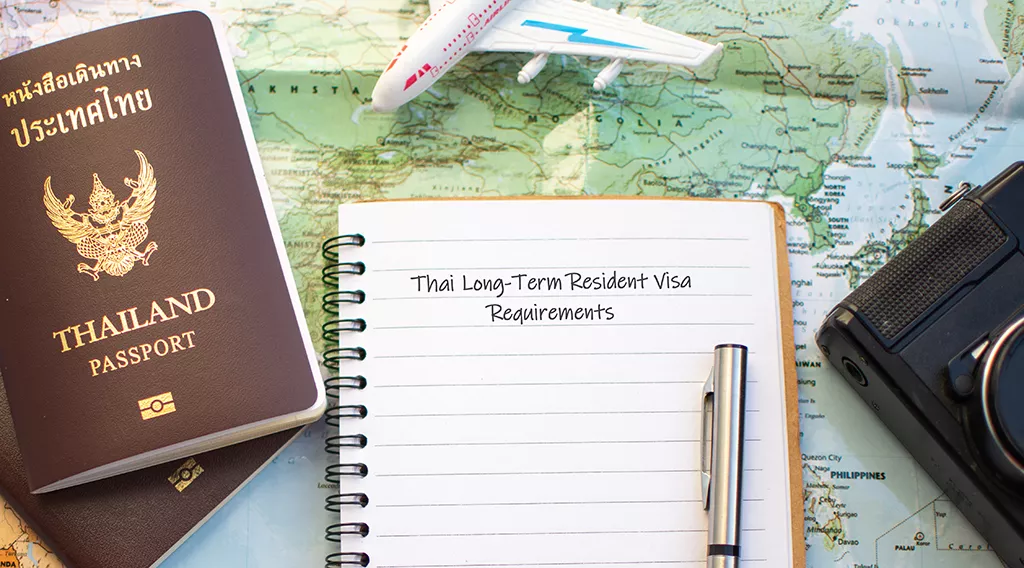Thailand is more than just a travel destination—it’s a place where many decide to stay for the long haul. From retirees seeking warm weather and low costs to remote workers drawn to the digital nomad life, Thailand offers diverse visa options tailored for long-term living.
But with multiple visa types, each with its own rules and requirements, it’s easy to get overwhelmed. That’s why we’ve created this in-depth guide to explain the main long term visa thailand—focusing on three of the most popular paths: retirement, work, and digital nomad visas.
Let’s break down each path so you can decide which one suits your goals in the Land of Smiles.
Why Choose a Long Stay Visa in Thailand?
Thailand is a top destination for long-term living thanks to:
-
Affordable lifestyle: Live well for $1,000–$2,000/month
-
Natural beauty: Beaches, mountains, islands, and vibrant cities
-
Modern healthcare: Excellent hospitals at a fraction of Western prices
-
Friendly locals: Thai hospitality is famous for good reason
-
Global community: Active expat and digital nomad hubs
Whether you’re looking to retire in Chiang Mai, work in Bangkok, or code from a beach in Phuket, Thailand has a visa option that fits your lifestyle.
Thailand’s Three Main Long Stay Visa Categories
1. Retirement Visas
2. Work Visas
3. Digital Nomad Visas (LTR and Elite options)
1. Retirement Visas: Settle Down in Peace
If you’re over 50 and want to spend your golden years in comfort and peace, the Retirement Visa is ideal.
Visa Types:
-
Non-Immigrant O (apply inside Thailand)
-
Non-Immigrant O-A (apply from your home country)
Requirements (as of 2025):
-
Age 50 or older
-
Valid passport
-
Financial proof:
-
800,000 THB in a Thai bank account OR
-
Monthly income of 65,000 THB
-
-
Health insurance covering:
-
Inpatient: 400,000 THB
-
Outpatient: 40,000 THB
-
-
Clean criminal record
-
Residence address in Thailand
Validity:
-
1 year (renewable yearly)
Can You Work?
-
No. Retirement visas are strictly for non-working residents.
Who It’s Best For:
-
Retirees who want a stable, low-cost, and safe environment
-
Seniors looking for access to affordable healthcare and good weather
Pros:
-
Simple eligibility for most retirees
-
Established expat communities
-
Health care options are excellent
Cons:
-
Must report to immigration every 90 days
-
Strict financial monitoring
-
No work privileges
2. Work Visas: For Employees and Entrepreneurs
Want to legally work in Thailand? You’ll need a Non-Immigrant B visa along with a Work Permit.
Ideal for:
-
Professionals hired by Thai companies
-
Business owners or foreign investors
Key Requirements:
-
Job offer or employment contract from a Thai company
-
Bachelor’s degree (often required)
-
Employer must provide supporting documents, including:
-
Company registration
-
VAT and tax records
-
Proof of Thai staff employment
-
-
Medical certificate and valid passport
Validity:
-
Typically 1 year, renewable
-
Multiple-entry visa optional
Work Permit:
-
Issued separately by the Thai Ministry of Labour
-
You must not begin working before the work permit is issued
Can You Bring Family?
Yes. Spouse and children can apply for Non-Immigrant O dependent visas.
Who It’s Best For:
-
Teachers, engineers, IT specialists, hotel staff
-
Entrepreneurs starting a Thai business
-
Foreign managers and skilled workers
Pros:
-
Legal employment in Thailand
-
Path to permanent residency after 3 years
-
Can open bank accounts and sign long-term leases
Cons:
-
Paperwork-heavy and employer-dependent
-
Limited to approved industries and job roles
-
Work permits tied to employer; change of job requires reapplication
3. Digital Nomad Visas: Remote Work from Thailand
Thailand has become a digital nomad hotspot—but until recently, working online while in Thailand was a legal gray area. That changed with the introduction of Long-Term Resident (LTR) Visas and the flexibility offered by the Thailand Elite Visa.
Option A: LTR Visa for Remote Professionals
Launched in 2022, the LTR Visa supports remote workers, investors, and skilled professionals.
Categories Relevant to Nomads:
-
Work-from-Thailand Professionals
-
Highly Skilled Professionals
Requirements (as of 2025):
-
Working remotely for a foreign employer
-
Annual income of at least $80,000 USD
-
5 years of work experience in a relevant industry
-
Health insurance or proof of savings
-
Background check
Validity:
-
10 years (renewable every 5 years)
-
Includes digital work permit
Benefits:
-
Legal right to work remotely from Thailand
-
17% flat income tax rate (for some professions)
-
No 90-day reporting (only once a year)
-
Spouse and children can apply under the same visa
Who It’s Best For:
-
Remote tech workers, freelancers, consultants, entrepreneurs
Pros:
-
Legal working status
-
Long duration
-
Access to Thai workspaces and coworking hubs
Cons:
-
High income requirement ($80,000 USD/year)
-
Background checks and BOI involvement
-
Application can take 2–4 months
Option B: Thailand Elite Visa for Nomads with Means
While not a work visa, the Elite Visa offers a simple, long-term stay solution for digital nomads who don’t need a Thai work permit.
Packages (2025):
-
5 years: 900,000 THB
-
10 years: 1.5M THB
-
15–20 years: 2.5M–5M THB
Benefits:
-
Long-term stay without employment requirements
-
Airport VIP services and concierge
-
Annual health checkups
-
Minimal bureaucracy
Can You Work Remotely?
-
Technically yes, as long as your income is generated from outside Thailand and you don’t work for a Thai company.
Pros:
-
No visa runs or renewals
-
Hassle-free lifestyle
-
Legally safe for non-Thailand income earners
Cons:
-
Expensive
-
No path to Thai permanent residency
-
Not a solution for people needing legal work permits
Comparing Retirement, Work, and Digital Nomad Visas
| Feature | Retirement Visa | Work Visa | Digital Nomad Visa (LTR/Elite) |
|---|---|---|---|
| Work Allowed | ❌ | ✅ | ✅ (LTR), ⚠️ (Elite) |
| Duration | 1 year (renewable) | 1 year (renewable) | 10 years (LTR), 5–20 years (Elite) |
| Income Requirement | 65,000 THB/month | Salary from Thai employer | $80,000 USD/year (LTR) |
| Age Requirement | 50+ | None | None |
| Health Insurance | Required | Often required | Required (LTR), optional (Elite) |
| Work Permit | ❌ | ✅ Required | ✅ (LTR), ❌ (Elite) |
90-Day Reporting: A Common Rule
Most long stay visa holders must report their address to Thai immigration every 90 days. Exceptions:
-
LTR visa holders: Once a year
-
Elite visa holders: Exempt
You can report:
-
In person at the immigration office
-
Online (in some provinces)
-
Through a visa agent
Failing to report can lead to fines or visa complications.
Important Tips for Long-Term Visa Holders
-
Open a Thai Bank Account
Essential for showing financial proof and managing local expenses. -
Get Comprehensive Health Insurance
Required for retirement and LTR visas. It’s also wise for peace of mind. -
Stay Legal
Avoid visa overstays—they result in daily fines and potential blacklisting. -
Consult a Certified Visa Agent
Especially useful for complicated visas like the LTR or business visas. -
Learn Basic Thai
While not a requirement, it’ll help in everyday life and improve your experience.
What About Permanent Residency?
If you’ve held a long stay visa for at least 3 consecutive years, you may apply for Thai Permanent Residency (PR).
Benefits of PR:
-
No need for visa renewals
-
Easier property ownership (condos)
-
Thai ID card and pathway to citizenship
PR Application Requirements:
-
Valid long-term visa
-
Proof of income and employment
-
Thai language skills
-
Police clearance and medical check
Final Thoughts
Whether you’re planning to enjoy a laid-back retirement, explore work opportunities, or live the digital nomad dream, Thailand has a long stay visa option tailored for you.
-
Retirees: Apply for the Non-Immigrant O or O-A visa and enjoy a peaceful life in paradise.
-
Professionals: Get a Non-Immigrant B visa and work legally while enjoying life in Southeast Asia.
-
Digital Nomads: Go for the LTR visa for legal working rights, or the Elite visa for flexibility and comfort.
Choose the path that matches your lifestyle, income, and goals. And once you’ve got your visa in hand, you’re not just a visitor—you’re home.
Frequently Asked Questions (FAQ)
Q: Can I switch from a tourist visa to a long stay visa in Thailand?
Yes, but only for certain types like retirement or education visas. Consult immigration.
Q: Can I bring my family on a long stay visa?
Yes. Most long stay visas allow dependent visas for spouse and children.
Q: What if I work online but don’t have a work permit?
If you earn from outside Thailand and hold an Elite or LTR visa, you’re generally safe. But avoid local clients.
Q: How long can I stay in Thailand without a visa?
Tourist visa exemptions offer 30–60 days. For long-term living, a proper visa is essential.





